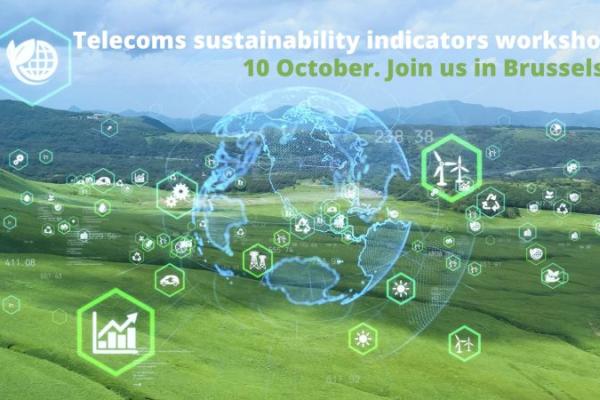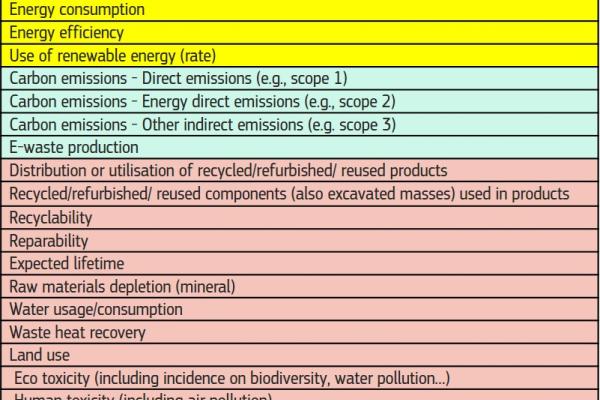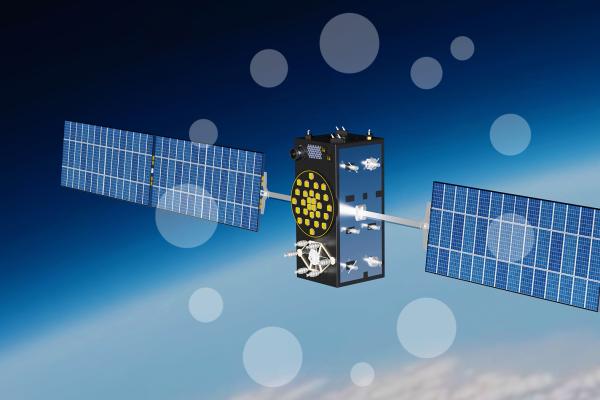- Contributes to EC priorities:
Communications services enable energy savings in a range of sectors and generate therefore significant positive externalities. In this context, the Digital Decade Policy Programme 2030 for Europe and the green transition go hand-in-hand in what is qualified as a “twin transition”. However, the energy consumption of communications networks is also increasing fast, and it is important to tackle the energy consumption of the networks themselves to reduce the energy impact.
Climate and environmental impact of telecommunication networks
Energy consumption is closely related to climate impact because the carbon emissions are directly related to energy consumption. Then, telecommunication networks may have also a climate impact and telecom operators around Europe are taking concrete actions to reduce their carbon emissions across the different elements of their networks and their operation.
Beyond climate, the design, implementation and deployment of telecommunication networks may have also an environmental impact, because electronic equipment may pollute the environment, data centres requires water for cooling, raw materials can be depleted and not be recovered and so on.
Identification of sustainability indicators
This project is focused on the identification of sustainability indicators to measure the energy, climate and environmental impacts of telecommunication networks. There is already a significant amount of work done in the definition of metrics and standards for sustainability and telecom operators and vendors across Europe use such indicators to measure and report their impact. On the other side, there is also fragmentation among different standards and evaluation metrics and potential gaps for specific data collection and analysis activity.
This is why the action plan foresees that the EU should develop common indicators to enable the monitoring and benchmarking of the energy consumption and environmental footprint of communications networks. It also calls on the Commission and industry to set up a Code of Conduct by 2025 to promote best practices to reduce the environmental footprint of the sector.
Starting from the activity of BEREC for electronic communication and services and the work done already by the JRC on Code of Conducts for Data Centers and Broadband Equipment, this project aims to define Code of Conducts for the more general domain of electronic communication and services or more specifically telecommunication networks both mobile and fixed.
Publication of the report on the findings of the study

The JRC Technical Report “Identification of common indicators for measuring the environmental footprint of electronic communications networks (ECNs) for the provision of electronic communications services (ECSs)” delivers on the Commission’s 2022 Digitalising the Energy System Action Plan (COM/2022/552 final) as regards common indicators for measuring the environmental footprint of electronic communications networks (ECNs) for the provision of electronic communications services (ECSs). It was made public on 12 March 2024 and is available at the following link:
Identification of common indicators for measuring the environmental footprint of electronic communications networks (ECNs) for the provision of electronic communications services (ECSs)
The report reflects the following elements and provides:
- The main findings from an analysis of the related literature and the state of the art in telecommunications sustainability indicators and recommendations from governmental, industrial and academic domains.
- The results of an analysis of the current regulatory and standardisation framework for sustainability in Information and Communication Technologies (ICT) in general and telecommunication infrastructures in particular.
- The results from the survey conducted between 26 May and 23 June 2023 where stakeholders from all relevant telecommunication sectors (e.g., telecom operators, telecom vendors, auditors and so on) provided input for the prioritisation of the indicators, potential areas to improve and challenges to address to implement and effective monitoring
- The findings from the stakeholder workshop conducted on 10 of October 2023 on sustainability indicators in telecommunication networks. More than 50 participants participated to the workshop with the objective to assess the preliminary findings from the JRC analysis and the results from the survey. In addition, participants shared their experience and the lessons learnt in implementing sustainability activities in telecommunication networks
Among the 19 indicators analysed, the report identified 8 indicators that could be considered as high priority for the sustainability of telecommunications networks and are therefore classified as “Must Have”, 6 indicators with medium priority and therefore classified as “Should Have” and 5 indicators with a low priority and therefore classified as “Nice to Have”.
The identification and analysis of the main sustainability indicators is to prepare the ground for a future Code of Conduct for sustainable telecommunications networks – a related task under the Digitalising the Energy System Action Plan.
For comments and potential corrections, please send your feedback to JRC-sustainabilityecn ec [dot] europa [dot] eu (JRC-sustainabilityecn[at]ec[dot]europa[dot]eu). The received feedback will be taken in consideration for the future Code of Conduct and a potential revision of this report.
ec [dot] europa [dot] eu (JRC-sustainabilityecn[at]ec[dot]europa[dot]eu). The received feedback will be taken in consideration for the future Code of Conduct and a potential revision of this report.



